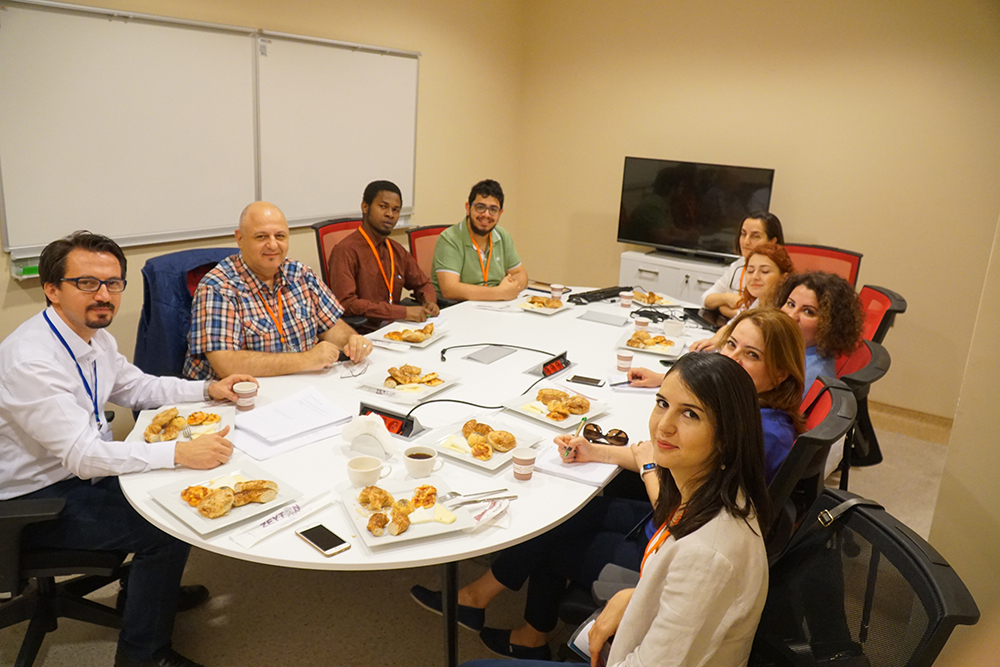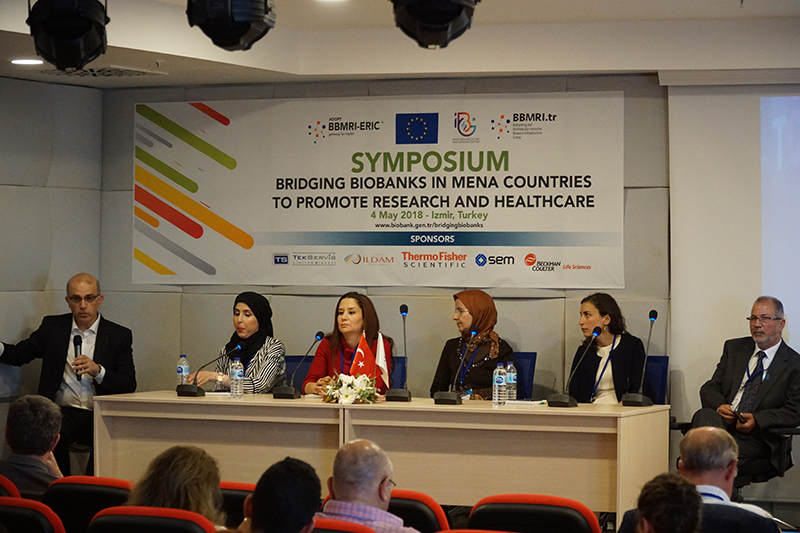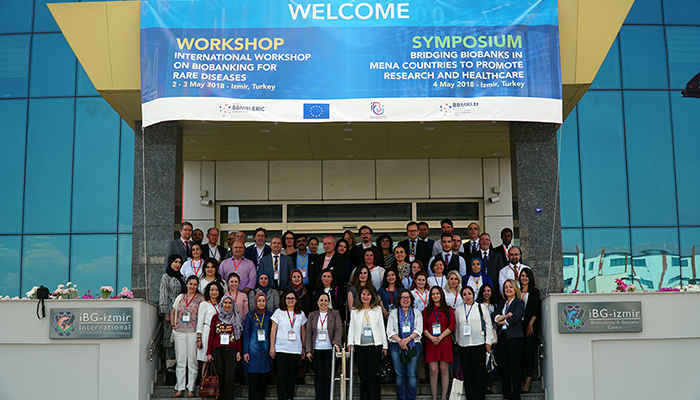An international workshop on “Biobanking for Rare Diseases” and a symposium on “Bridging Biobanks in MENA Countries to Promote Research and Healthcare” took place in Izmir, Turkey between 2-4 May 2018.
Both meetings were funded by the “Biobanking and Biomolecular Resources Infrastructure in European Research Infrastructures” (BBMRI-ERIC) through its European Commission Horizon 2020 project “BBMRI-ERIC-ADOPT”, and were organized by BBMRI.tr, the Turkish node of BBMRI.
The event hosted by IBG (Izmir Biomedicine and Genome Center) brought together a total of 132 participants and experts from 14 different countries. These meetings aim to establish and strengthen existing collaborative biobanking networks in MENA countries, as well as to facilitate their integration with pan-European counterparts.
The symposium started with the welcome speech of Prof. Mehmet Ozturk, director of IBG, and Prof. Nese Atabey, national coordinator of BBMRI.tr. In the first session, experts from BBMRI-ERIC shared their knowledge on critical aspects of biobanking such as principles of biobanking in human biospecimens, ethical concepts, quality management systems and database management security for biobanks. In the afternoon session, Rania Labib (Egypt), Imane Cherkaoui (Morocco), Maher Sughayer (Jordan), Ada Al-Qunaibet (Saudi Arabia), Sibel Ugur Iseri (Turkey), Said Ismail (Qatar), Yosr Hamdi (Tunisia) shared their experiences on the establishment of a modern biobank.

Day 2 started with problem-based learning (PBL) sessions. With the guidance of their tutors and using published papers and guidelines to aid them, 5 different groups of 10 participants discussed some examples of challenges biobanks face, as well as the management of potential risks related to quality control, ethics and disasters on real-life cases.
In the afternoon session, speakers with expertise in different areas talked about the real workflow in a biobank and shared their experiences on taking informed consent, sample registration and processing, quality management and the access and distribution of samples. iPSC biobanking, cancer organoids and Patient Derived Xenograft (PDX) models used in drug discovery were among the most inspiring and interesting talks of the day.

The symposium started with the welcome speech of Prof. Murat Ozgoren, ESFRI delegate of Turkey. Then, Prof. Ozgoren gave a joint interactive speech with Dr. Dominic Sobczak, ESFRI Executive Secretary, via videoconference about the networks of national and international research infrastructures, funds for projects and establishment strategies that gained wide interest from participants. This was followed by an inspiring speech by Prof. Kurt Zatloukal, BBMRI-Austria, about the impact of digital pathology on biobanking. In the afternoon session, experts from different regions of the MENA shared experiences on their national genome projects.
In the final session, the establishment of a MENA biobanking network was discussed. The panelists addressed some critical questions such as which field the Consortium should primarily focus on, which funding sources could be used, and so on. The consensus was that it is essential to create a BBMRI-MENA Consortium, and that future efforts should focus on its planning.

